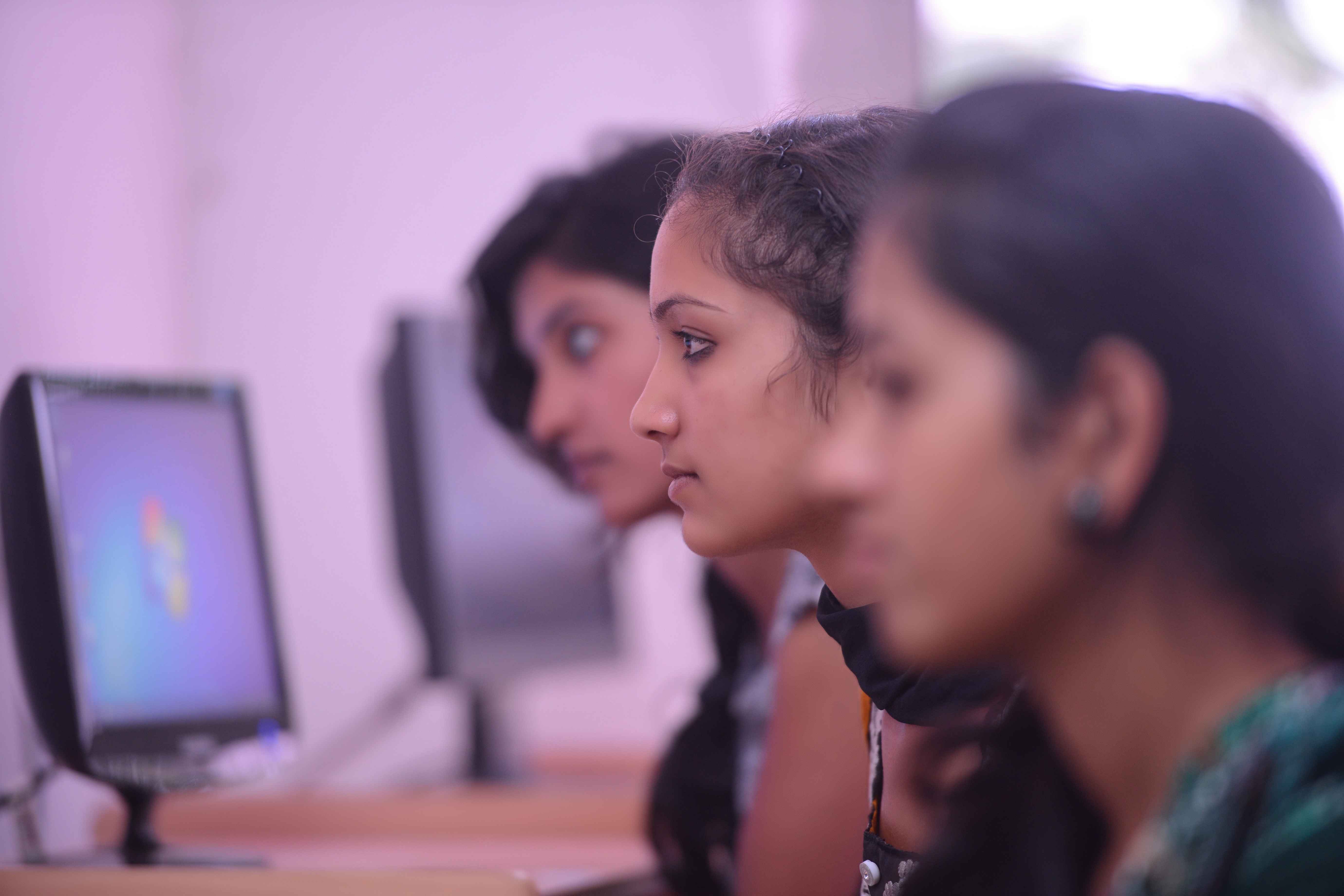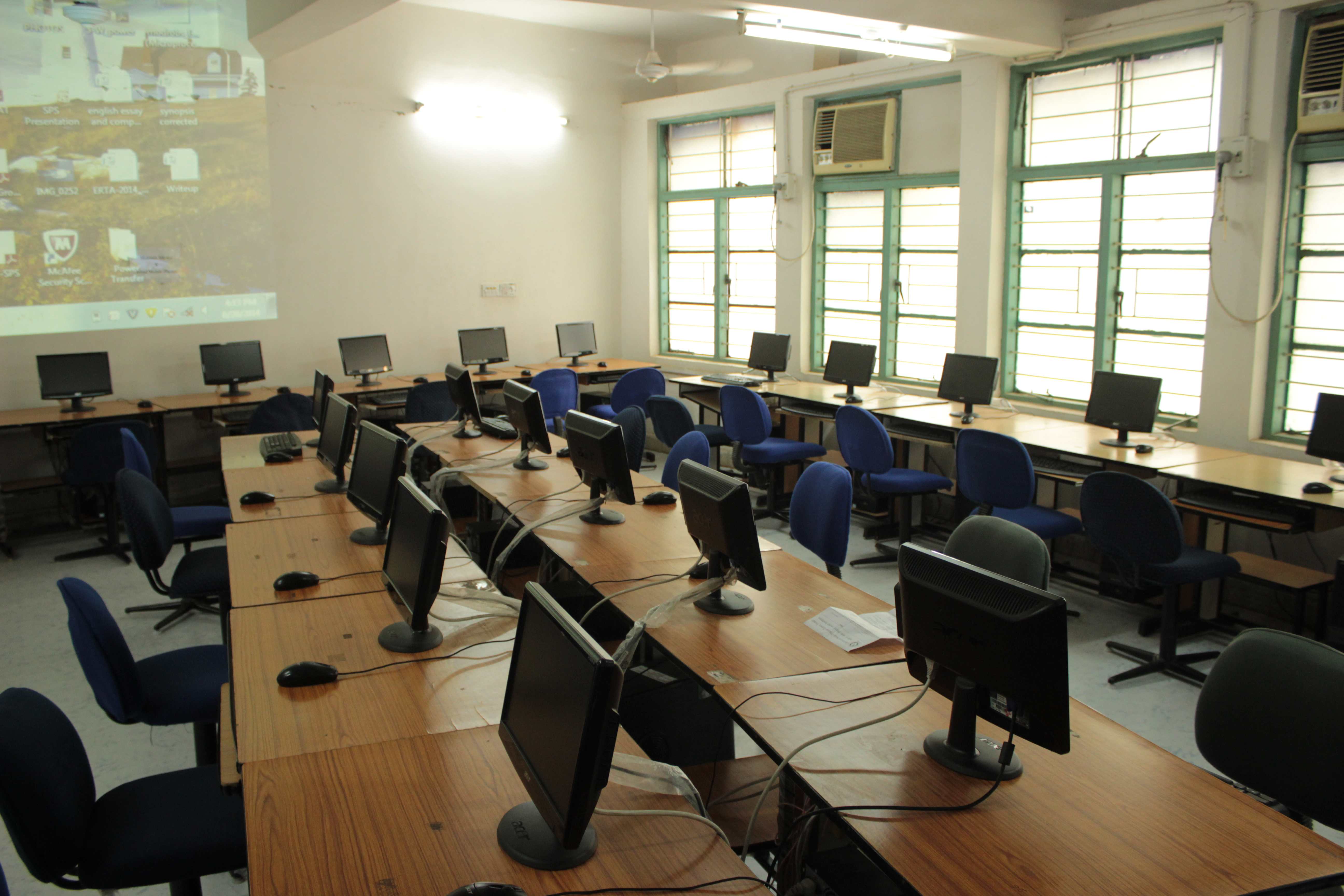Department Contact Info
Computer Science Engineering
Chhatauna, Mandir Hasaud, Sector 1, Raipur, Chhattisgarh 492101 (+91) 93297 73028
(+91) 93297
73026 info@rit.edu.in
Entrance / Selection Test - Selection of the candidates should be based on the merit basis
B.TECH (Computer Science Engineering) I Semester
| S.No | Subject Name |
| 1 | Applied Mathematics-I |
| 2 | Professional Communication in English |
| 3 | Applied Chemistry |
| 4 | Engineering Graphics |
| 5 | Elements of Electrical Engineering (New) |
B.TECH (Computer Science Engineering) II Semester
| S.No | Subject Name |
| 1 | Applied Mathematics-II |
| 2 | Environment & Ecology |
| 3 | Applied Physics (New) |
| 4 | Basic Civil Engineering |
| 5 | Fundamentals of Computer Science Engineering (New) |
B.TECH (Computer Science Engineering) III Semester
| S.No | Subject Name |
| 1 | Mathematics-III |
| 2 | Basic Electronics |
| 3 | Computational Science |
| 4 | Problem Solving & Logic Building using C |
| 5 | Computer Concepts & Web Technology |
| 6 | Digital Electronics & Logic Design |
B.TECH (Computer Science Engineering) IV Semester
| S.No | Subject Name |
| 1 | Computational Mathematics |
| 2 | Discrete Structures |
| 3 | Data Structures |
| 4 | Computer Systems Architecture |
| 5 | Object-Oriented Concepts & Programming using C++ |
| 6 | Operating System |
B.TECH (Computer Science Engineering) V Semester
| S.No | Subject Name |
| 1 | Microprocessor and Interfaces |
| 2 | Analysis and Design of Algorithms |
| 3 | Programming in Java |
| 4 | Theory of Computation |
| 5 | Unix & Shell Programming |
| 6 | Database Management System |
B.TECH (Computer Science Engineering) VI Semester
| S.No | Subject Name |
| 1 | Computer Networks |
| 2 | Compiler Design |
| 3 | Enterprise Resource Planning |
| 4 | Software Engineering & Project Management |
| 5 | Computer Graphics |
| 6 | Inter-Networking with TCP/IP |
B.TECH (Computer Science Engineering) VII Semester
| S.No | Subject Name |
| 1 | Mobile Computing & Application |
| 2 | Parallel Processor and Computing |
| 3 | Network Programming |
| 4 | Cryptography & Network Security |
| 5 | E-Commerce & Strategic IT |
B.TECH (Computer Science Engineering) VIII Semester
| S.No | Subject Name |
| 1 | Artificial Intelligence & Expert Systems |
| 2 | Data Mining & Warehousing |
| 3 | Cyber Security |
| 4 | Decision Support System |
| 5 | Internet & Web Technology |





Computer Science Engineering Department
The Department was established in the academic year 1999 offering a 4-year undergraduate program with an annual intake of 90. The department is also successfully running 2 Post Graduate Programs in Computer Science and Engineering and Software Engineering since 2008. The faculty members of the department have global experience and training. The departmental research is focused in the areas of Artificial Intelligence, Parallel Processing, Software Engineering, Image Processing, and Computer Vision, Medical Image Processing, Pattern Recognition, Data mining and Web mining, Biometrics, Natural Language Processing (NLP), Machine Learning, and Information Extraction. The department has all the facilities to carry out the related teaching and research work. The Department enthusiastically supports and initiatives students to create intellectual communities that extend beyond the classroom, and we encourage students at all levels to take advantage of the programs offered at the global level.
Computer Science Engineering Scope
The scope of the branch / Course in for computer science and engineering graduates:
- Software Applications: The application of computer science and engineering technology to solve problems outside the field of computer science – for example, medical or educational applications.
- Artificial Intelligence: The development of computers that simulate human learning and reasoning ability.
- Computer System Architecture: The design of new computer instruction sets, working to combine optical or electronic components to create faster, more cost-effective computing environments.
- Information Technology: The development and/or management of information systems that support industry, which can involve hardware, software, algorithms, databases, and man-machine interfaces.
- Software Engineering: The creation of methods for the production of software systems quicker and more efficiently.
- Operating Systems and Computer Networks: The development and implementation of the basic software computers use to supervise themselves or communicate with other computers in a network.
Computer Science Engineering Placement
Graduates of this course could occupy a job position in the following areas.
- Web Developers
- Software Developers
- Hardware Engineers
- Software Compliance
- Software Testing
- Database Analysts (SQL)
- Applications Developer
- Security Analysts
- Business System Analyst
- Data Warehouse Developer / Analyst
- Mobile Applications Developer
Some National and Multinational Companies who offer Job to Computer Science graduates are AMAZON, CISCO, Google, IBM, TATA, Infosys, Microsoft, Wipro, Oracle.
VISION
To be among the best programs in Computer Science & Engineering, generating Software & IT Professionals, along with various skills like proper attitude, Techincal skills, Knowledge, ethics and to become a renowned center for the genesis of creative ideas and solutions.
MISSION
- To provide distinctive and relevant education within scientific and professional environment.
- To develop curricula that are holistic, flexible and dynamic in design so as to nurture heightened cognitive abilities leading to creativity and innovation.
- To dispense quality knowledge and practical skills, to achieve excellence in education and create technologically competent manpower for the global institutions.
- To give impetus to creative minds to transform society through innovation, design and to build entrepreneurship, leadership and to facilitate concerted action.
PROGRAM OUTCOMES (POs)
Engineering Graduates will be able to:
- 1. Engineering knowledge: Apply the knowledge of mathematics, science, engineering fundamentals and an engineering specialization to the solution engineering problems.
- 2. Problem analysis: Identify , formulate,review research literature and analyze complex engineering problem reaching substantiated conclusion using first principles of mathematics , natural science and engineering sciences.
- 3. Design/Development of solutions:Design solutions for complex engineering problems and design system components or processes that meet the specified needs with appropriate consideration for the public health and safety and the cultural,society and environmental considerations.
- 4. Conduct investigations of complex problems: Use research-based knowledge and research methods including design of experiments, analysis and interpretation of data and synthesis of the information to provide valid conclusions.
- 5. Modern tool usage: Create, select and apply appropriate techniques, resources and modern engineering and IT tools including prediction and modeling to complex engineering activities with an understanding of the limitations.
- 6. The engineer and society: Apply reasoning informed by the contextual knowledge to assess societal, health, safety, legal and cultural issues and the consequent responsibilities relevant to the professional engineering practice.
- 7. Environment and sustainability: Understand the impact of the professional engineering solutions in societal environmental contexts and demonstrate the knowledge of and need for sustainable development.
- 8. Ethics: Apply ethical principles and commit to professional ethics and responsibility and norms of the engineering practice.
- 9. Individual and team work: Function effectively as an individual and as a member or leaded in diverse teams and in multidisciplinary setting.
- 10. Communication: Communicate effectively on complex engineering activities with the engineering community and with society at large such as being able to comprehend and write effective reports and design documentation make effective presentation and give and receive clear instructions.
- 11. Project management and finance: Demonstrate knowledge and understanding of the engineering and management principles and apply these to one's own work as amember and leader in a team to manage projects and multidisciplinary environments.
- 12. Life- long learning: Recognize the need for and have the preparation and ability to engage in independent and life-long learning in the broadest context of technological change.
PROGRAMME SPECIFIC OUTCOMES (PSOs)
After completion of this programme students will be able to attain.
- PSO 1: Demonstrate basic knowledge of computer applications and apply standardized practices to software project development.
- PSO 2: Apply the fundamental knowledge of computer science, analyze the real time problems and provide the computer based solutions.
- PSO 3: Design effective systems and models for real time applications using the data structure, programming languages, machine learning, artificial intelligence models and networks.
PROGRAMME EDUCATIONAL OBJECTIVES (PEOs)
- PEO 1: To be able to understand and analyze computer science and engineering problems and relate them to real life.
- PEO 2: To impart in-depth knowledge of computer science and engineering to meet industrial needs, undertake and excel in graduate studies and innovation in related areas of engineering.
- PEO 3: Promote collaborative learning and teamwork through multidisciplinary projects and a diverse professional ethics with an inclination for higher studies and research.
- PEO 4: To inculcate a conviction to believe in self, impart professional and ethical attitude and nurture to be an effective team member, infuse leadership qualities, and build proficiency in soft skills and the abilities to relate engineering with the social, political and technical issues.
Engineering at RITEE USP's
- First & Only Engineering College in Chhattisgarh accredited with Grade A+ by NAAC • Experienced faculties
- Exceptional Laboratory Setup
- Huge collection of books in Library
- 7 Specialization in M.Tech
- 5 Research Centres for Ph.D
- Only Engineering college in India to have a commercial Bio Diesel plant within the campus
- Only Institute in Central India to have a BARC Centre
- First Engineering college of state to adopt Solar Power
- Many research work in progress
- Entrepreneur Development Cell – The story of Suraj Kumar
- Training Program
- Industrial Relation
- Amazing Placement record with highest package of 12 L per annum
- Campus placement of companies like Samsung, LG Soft, Shapoorji Pallonji, Byju’s
- About 45 companies visit every year
